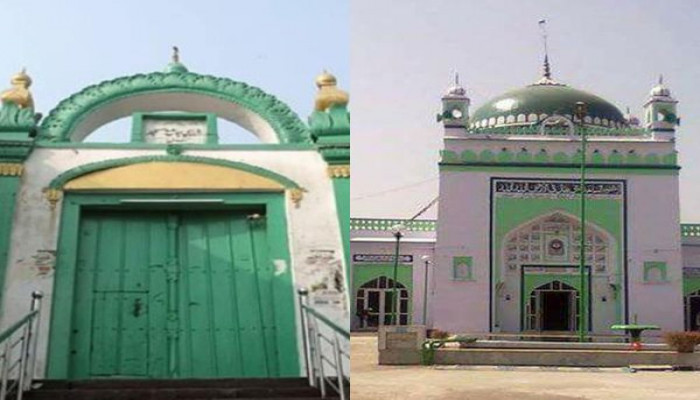UP government tells Supreme Court: Well near disputed Sambhal Mosque is on public land
- In Reports
- 07:39 PM, Feb 24, 2025
- Myind Staff
The Uttar Pradesh government informed the Supreme Court on Monday that a well near the disputed Shahi Jama Masjid in Sambhal is situated on public land and has no connection to the religious structure. The state made this statement in response to an application filed by the Shahi Jama Masjid Committee, which sought to maintain the current state of affairs regarding the well, known locally as Dharani Varah Koop, near the mosque’s entrance.
The government defended its decision to revive the well, stating that the initiative was undertaken by the district administration as part of a larger plan for ecological preservation and regional development. It argued that the mosque committee’s attempt to halt the revival process was illegal and detrimental to efforts aimed at conserving historical water sources.
The Uttar Pradesh government clarified that upon examining historical records, it was found that the mosque committee had failed to disclose the presence of a separate well within the mosque's boundary walls. The government asserted that the well in question had been used by people of all communities for generations. However, following communal riots in 1978, a police outpost was built over a portion of the well, while the remaining part continued to be accessible.
In 2012, the well was covered, and currently, it contains no water. The state government maintained that this well is part of a broader initiative to restore ancient water sources, which is essential for groundwater recharge and rainwater harvesting.
The well in question is among 19 ancient wells that the district administration plans to revive as part of a larger water conservation project. The government highlighted that developing these wells is critical, given that Sambhal has been classified as a ‘dark zone’ due to severely depleted groundwater levels.
Furthermore, the state emphasised that the restoration of these wells aligns with efforts to develop Sambhal as a tourism hub due to its cultural and historical significance. A proposal has already been submitted for the conservation of 14 wells, with an estimated budget of ₹123.65 lakh. The initiative aims to not only restore water sources but also enhance the region’s historical heritage.
The Shahi Jama Masjid in Sambhal, a Mughal-era mosque, has long been a focal point of religious disputes. Locals believe that the mosque was built after the Hindu temple called Hari Mandir was destroyed which has led to tensions between different communities over the religious structure.
While the Uttar Pradesh government has justified its well restoration efforts as part of a broader environmental and developmental plan, the dispute over the religious site remains a sensitive issue. The Supreme Court will now review the matter in light of the state’s submission.







Comments